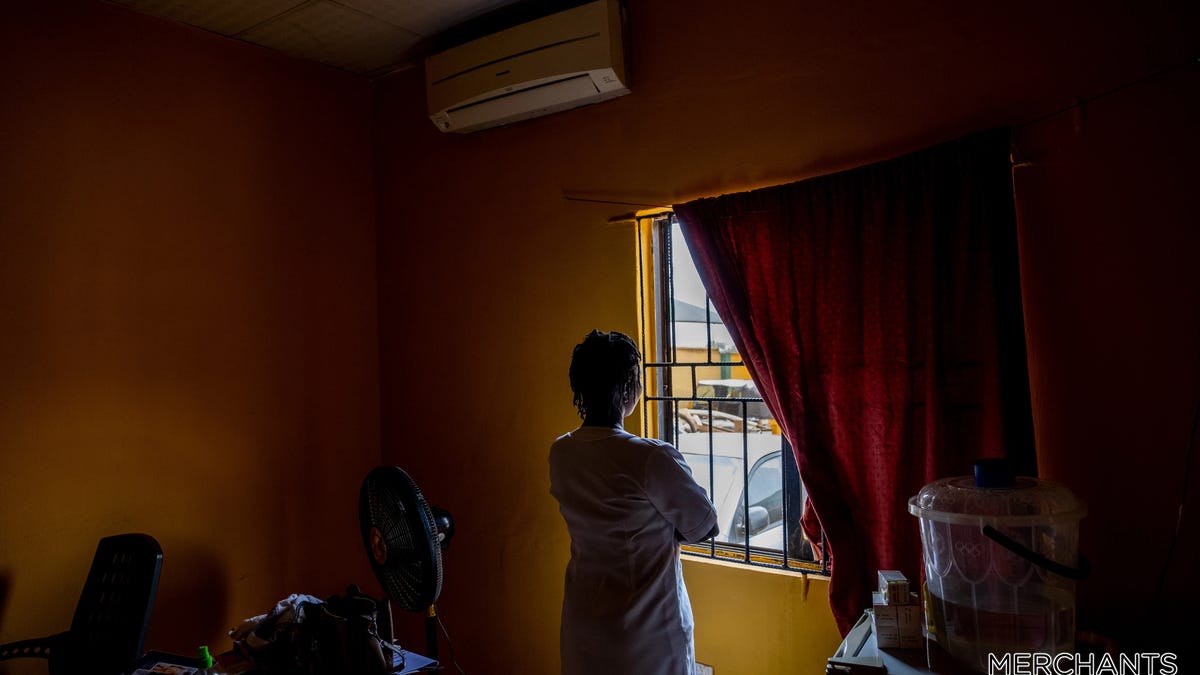This series, produced in collaboration with the nonprofit newsroom Type Investigations and supported by the Pulitzer Center, explores the challenges faced by nurses in Nigeria during the COVID-19 pandemic and their subsequent decision to seek employment in other countries. The healthcare system in Nigeria has been severely strained, leading to long working hours and inadequate pay for nurses like T. who have dedicated themselves to caring for patients. Instead of improved working conditions, T. and her colleagues have witnessed a deterioration in healthcare facilities and have often had to pool their own money to provide necessary treatments for patients who cannot afford them.
T. herself has experienced the limitations of the healthcare system firsthand, as she couldn’t afford a CT scan after a motorcycle accident and feared not being able to afford treatment if she contracted an infectious disease. The lack of concern from Nigeria’s public officials for the safety and well-being of healthcare workers has contributed to the high attrition rate among nurses in the country. Many of them have been enticed by job opportunities abroad, particularly in the United States, United Kingdom, and other countries.
The global demand for healthcare workers, exacerbated by the COVID-19 pandemic, has led to a bidding war for nurses, with rich countries trying to attract talent from countries like Nigeria, India, and the Philippines. While working abroad may offer better pay and working conditions, it has also exposed nurses to abuse and exploitation. Additionally, the exodus of nurses from countries like Nigeria has further weakened already fragile healthcare systems, leaving the remaining nurses overburdened and burnt out.
Nigeria, despite being Africa’s largest economy, has some of the worst health indicators in the world. The country’s health system is unable to effectively address issues such as malnutrition, basic hygiene and sanitation, and maternal and child mortality. The World Health Organization (WHO) has guidelines in place to protect countries with vulnerable health systems from losing their healthcare workers. However, these guidelines have not been sufficient in preventing the unchecked flow of healthcare workers from developing countries to wealthier ones, leading to health inequity on a global scale.
The WHO’s Global Code of Practice on the International Recruitment of Health Personnel, adopted in 2010, aims to promote ethical recruitment practices and mitigate the impact of migration on countries left behind. The code emphasizes fair treatment for healthcare workers who choose to migrate, financial and technical support from destination countries to sending countries, and the avoidance of recruitment from nations with vulnerable healthcare systems. However, the implementation and enforcement of these principles have been suboptimal.
In conclusion, the migration of nurses from Nigeria to other countries during the COVID-19 pandemic has highlighted the challenges faced by healthcare workers and the strains on healthcare systems in developing countries. The need for ethical recruitment practices and support for sending countries is crucial to maintaining a balanced and equitable global healthcare workforce.
Denial of responsibility! Vigour Times is an automatic aggregator of Global media. In each content, the hyperlink to the primary source is specified. All trademarks belong to their rightful owners, and all materials to their authors. For any complaint, please reach us at – [email protected]. We will take necessary action within 24 hours.


